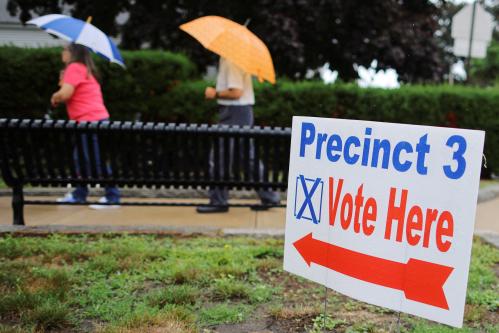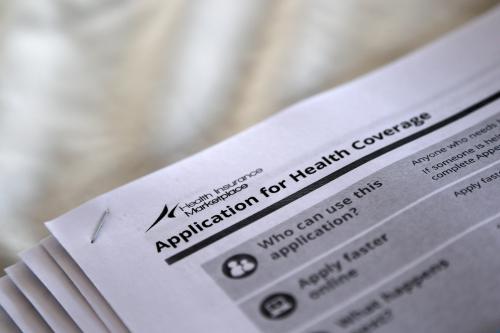For the past two decades, the Pew Research Center has probed Americans’ attitudes about the proper scope and emphasis of the federal government. The broadest question its researchers pose goes like this: Would you rather have a smaller government providing fewer services or a bigger government providing more services?
In survey results released on April 24, Pew reported a finding that will surprise many pundits and elected officials: For the first time since late 2008, Americans who want a larger government outnumber those who prefer a smaller one. In 11 of the 14 issue areas that Pew probed, support for increased spending has risen significantly since 2013. In most areas, Democratic support for raising spending increased. More significantly, Republican support for cutting spending fell almost across the board. The enthusiasm for lower spending and smaller government that helped fuel the rise of the Tea Party appears to have waned.
As a general proposition, to be sure, most Republicans still want a smaller government that does less and spends less. But on an issue-by-issue basis, their opposition to government spending is less intense than it was during the Obama years.
Notably, there are three areas where majorities of both Republicans and Democrats now support increased spending: education, veterans’ benefits and services, and infrastructure. Despite intense partisan polarization, which has not diminished during the early phase of the Trump administration, the opportunity for bipartisan agreement in these areas seems clear. And because President Trump emphasized two of these three issues—veterans and infrastructure—during his campaign, his leadership during the debate over the budget for Fiscal Year 2018 could prove decisive.
Other issues underscore the continuing disagreement between the parties. Republican support for more spending on the military and programs to combat terrorism has surged, while Democratic attitudes have barely budged. Conversely, 63 percent of Democrats but only 26 percent of Republicans want to spend more aiding the need. Sixty-one percent of Democrats want to increase spending for environmental protection, versus only 23 percent of Republicans.
Many Republican policy experts who worry about long-term federal budget deficits and the swelling federal deficit advocate cuts in large entitlement programs such as Social Security, Medicare, and Medicaid. The Pew survey finds little support for this strategy, even within their own party. Only 10 percent of rank-and-file Republicans favor cuts to Social Security; only 15 percent want to cut Medicare. When the broader issue of spending for health care is raised, Republicans are divided: 28 percent want to spend more, 35 percent want to spend less, and 33 percent would prefer to keep things as they are. This split helps explain why the Republican leadership in the House has had a hard time forging consensus on a bill to replace Obamacare.
The Brookings Institution is committed to quality, independence, and impact.
We are supported by a diverse array of funders. In line with our values and policies, each Brookings publication represents the sole views of its author(s).








Commentary
Bipartisan support for spending complicates life for GOP
April 28, 2017